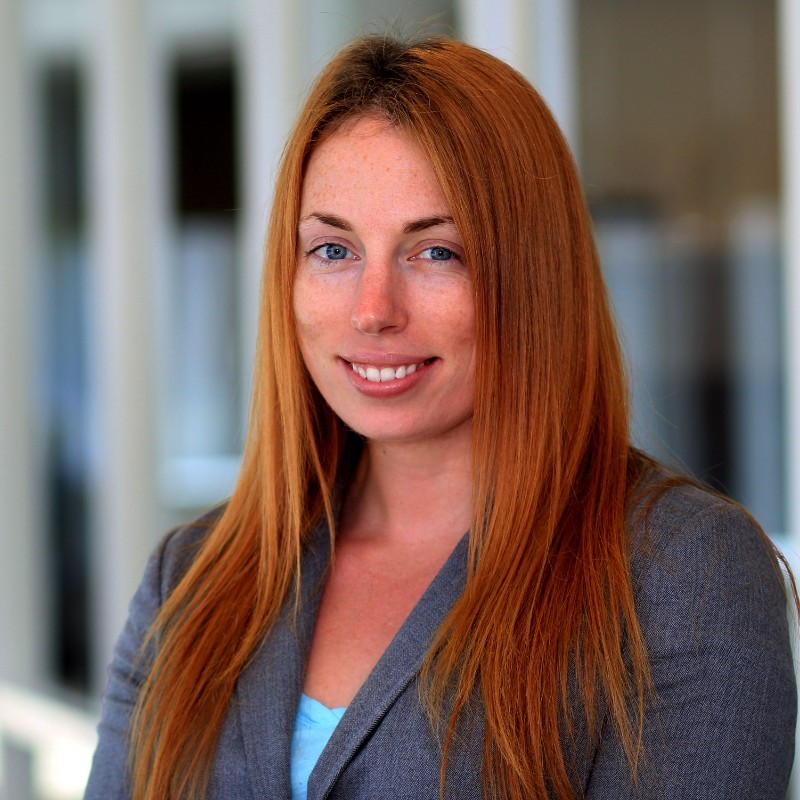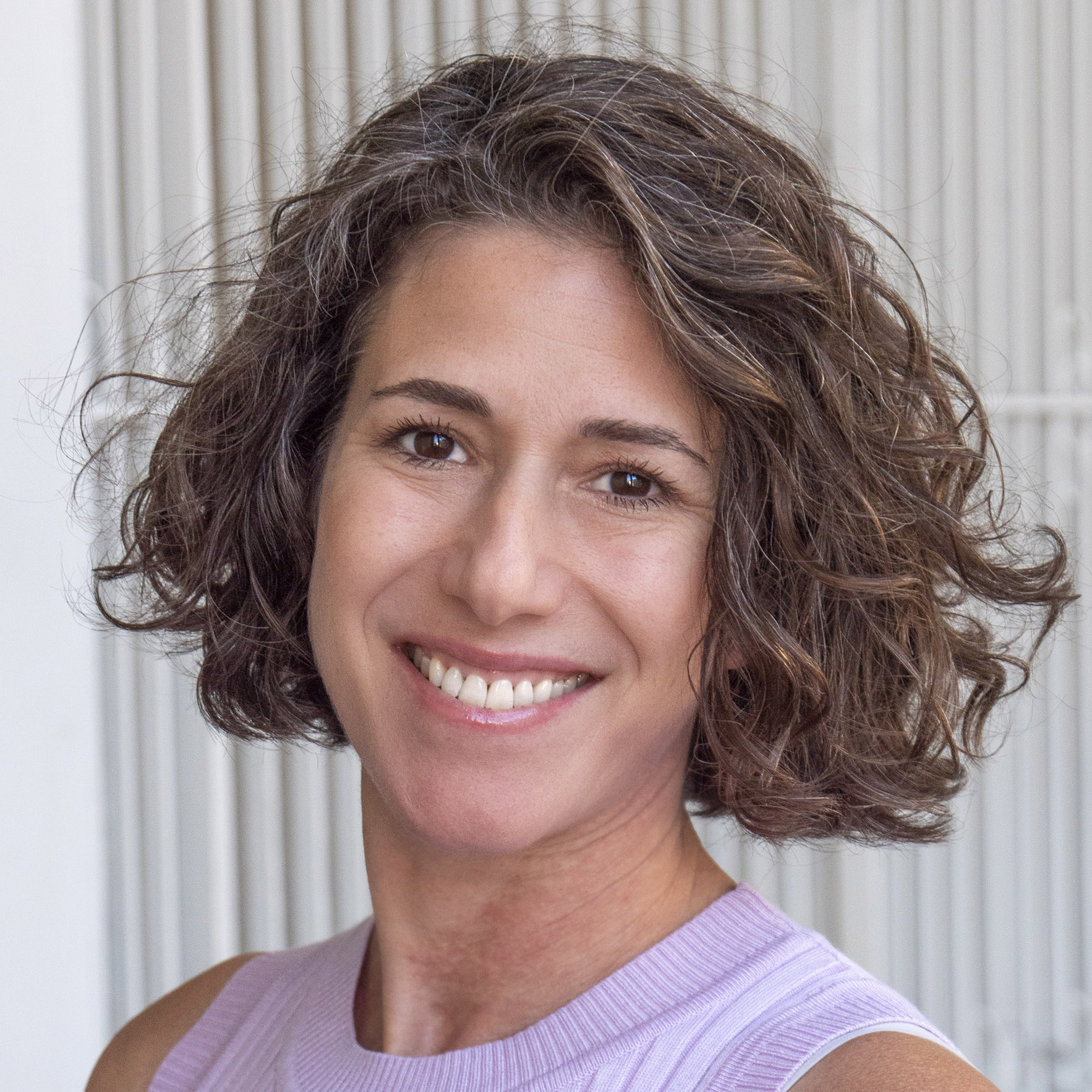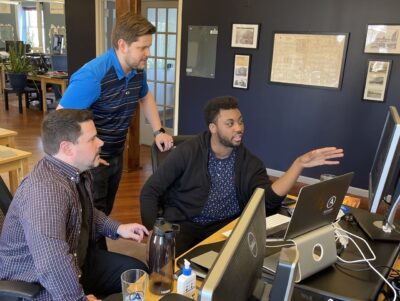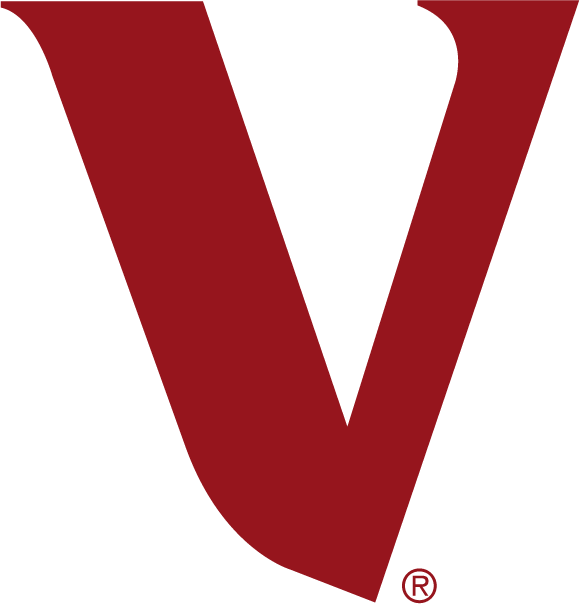
This is a sponsored guest post from Vanguard. A version was originally published on its website. Vanguard is a Technical.ly Company Builder client.
Vanguard is committed to creating an environment where our crew can thrive, and our Information Technology division is no exception. The division’s three most senior female leaders discuss their career journeys, the leaders and mentors who have empowered them, and Vanguard’s work to advance women in the IT field.
Meet the experts

Kim Petersen, Vanguard Head of International Systems (Courtesy Vanguard)
Kim Petersen is a principal and the head of International Systems and Technology, where she leads the tech teams that enable all of Vanguard’s international businesses.

Lauren Wilkinson, Vanguard Head of FAS Technology (Courtesy Vanguard)
Lauren Wilkinson is a principal and the head of Financial Advisor Services technology; in this capacity, she leads the tech teams that enable Vanguard’s domestic FAS business.
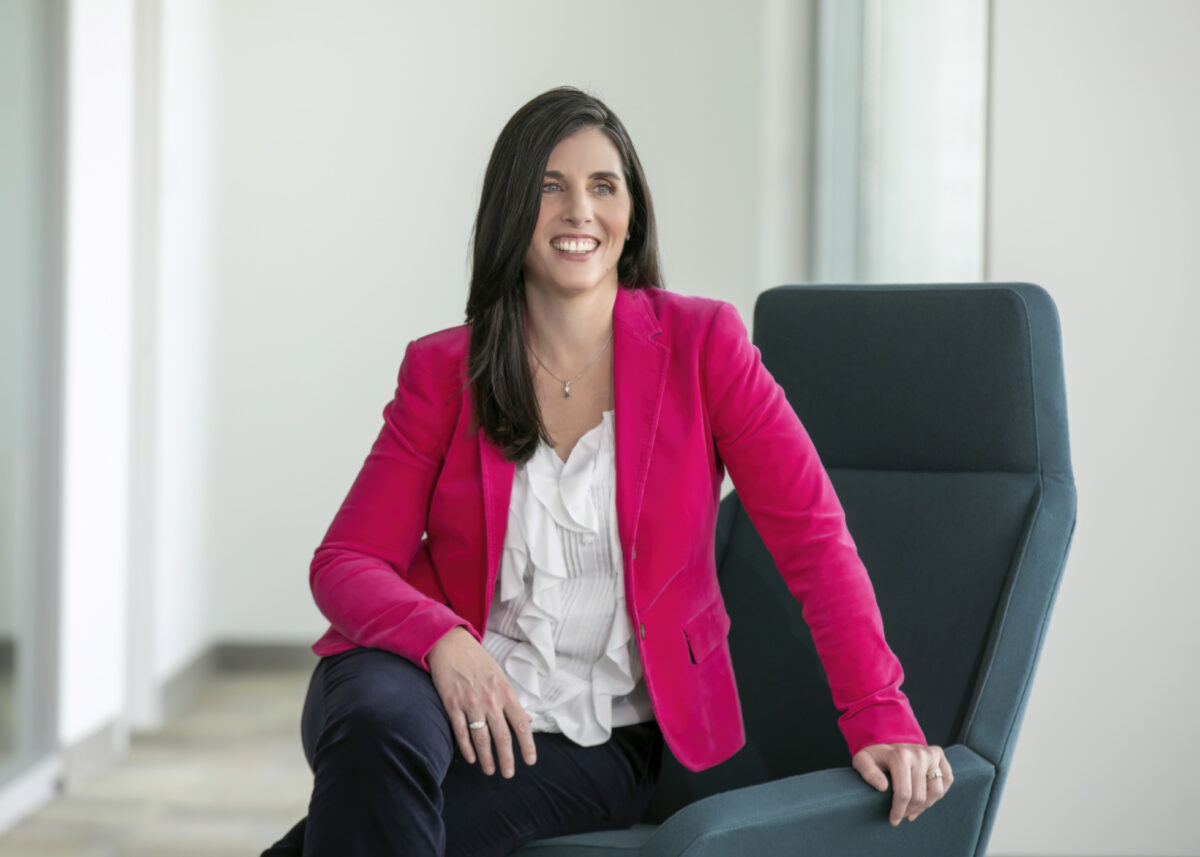
Jennifer Manry, Vanguard Head of Corporate Systems (Courtesy Vanguard)
Jennifer Manry is a principal and the head of Corporate Systems, where her teams build and run the technology that enables several Vanguard divisions.
All three leaders report to Vanguard chief information officer (CIO) Nitin Tandon. What follows is a recent conversation with them.
Can you walk us through your career paths? When did your passion for IT start? What brought you to the IT leadership team at Vanguard?
Petersen: When I was younger, my father was an accountant and brought home a laptop, and I was enamored with one of the first pieces of technology to enter our home. Before that, he was strict with allowing devices in our home and we had minimal TV access. As he grew to appreciate technology and its benefits to his work, it opened the window into our household. That set me on a course to study technology, but I found I was the only female in my technology and advanced math classes. I worked at Ford Motors coming out of college, followed by Jetstar, and noticed a common denominator with the values of the companies that served as my North Star: Low cost and good company culture.
In my interview with Vanguard, I remember a hiring manager speaking of Vanguard’s culture saying, “We don’t date, we marry.” Once you’ve worked at a few different organizations, you realize it’s more about the company’s values, culture and people that matter. Our mission is clear in the decisions we make every day at Vanguard, and our focus on clients and crew is unwavering.
Wilkinson: My earliest memories of working with computers is also with my father — we played computer and video games together. But I never thought I’d be into coding. I was a marine biology major and my advisor encouraged me to take a computer science class. I ended up loving it, especially the art and logic of coding. The experience made me pivot a bit and take more software engineering classes my senior year of college while finishing my marine biology major. Post-college, while working, I obtained my master’s degree in information management and systems. I’ve also always been interested in finance and thought the concept of compound interest was fascinating. I spent 15 years at Charles Schwab and then transitioned to Vanguard.
Manry: I knew at a very young age that I wanted to be an engineer. I declared at 9, while surrounded by NASA annual reports, that I would grow up to be an electrical engineer. I was fortunate to have a mother who, despite not knowing what exactly an electrical engineer did, instilled the belief in me that if I was passionate enough about something, I could figure it out and be successful at it. She was the biggest driving force for me and a “gender bias buster,” wherein she didn’t believe in “men’s jobs” or “women’s jobs,” but rather just doing something you were passionate about and excelling at it. In college I majored in mechanical engineering, and I worked at General Motors while in college and for several months afterward. I kind of fell in love with this idea of technology that facilitates the building of cars, and I got a bit of a bug around the IT side of the business doing manufacturing engineering. Following General Motors I switched to General Electric, then shifted to the finance industry, working at Genworth Financial, Capital One, Bank of America, then at Vanguard.
There are many interesting puzzles that come with working in financial services, like how you apply innovative technology in a highly regulated environment that is constantly changing. There are rules and constraints to work within — and being a critical thinker that loves solving problems is key to being successful.
What does gender equity mean to you? Do you volunteer with any groups or initiatives at Vanguard to further gender equity, or act as a mentor?
Wilkinson: For me, gender equity is really about if women feel supported in the type of career they want to pursue. Do they have the support that they need? When I think about norms in grade school through college, it wasn’t cool to be smart. It wasn’t cool to be interested in math. As a girl, there was and even now still tends to be some of these stereotypes and expectations. So for me, equity provides everyone the support they need to pursue a technology career. I’m a member of the 30% Club, an external organization in which Vanguard participates. The goal is to get at least 30% female representation on boards, and I’m a mentor for other members.
Manry: It’s evident in our society that women systematically either do not feel like they fit in or are not encouraged. A while back I studied the “leaky pipeline” effect of women’s underrepresentation in STEM fields. It drove me to start my involvement with Women Who Code, a nonprofit organization that helps women advance in technology careers. After being on the advisory board for many years, I recently stepped into the board chair position. It’s about providing not only the technical skilling, but also the network and support structure to help women feel like they belong. I feel like I’ve benefited from someone encouraging me, and I need to be one of those encouragers myself.
Petersen: Vanguard Australia recently received the Employer of Choice for Gender Equality (EOCGE) citation for 2023/2024, which honors organizations who are dedicated to gender equality in the workplace. I am proud to work for a company that cares deeply about gender equality and the factors that contribute to a workplace where we can all thrive.
I’m a member of Vanguard’s WILS community (Women’s Initiative in Leadership Success) and have enjoyed participating in their Big Sibling mentoring program in Australia. This program pairs female leaders with crew for support and guidance in areas such as career planning, expanding professional networks, developing skills and business acumen. It’s a fun program to participate in, and I’ve loved seeing our crew progress in their careers at Vanguard.
How do you balance your leadership role with the fullness of life’s other priorities?
Manry: I wish I had a magic formula! I think giving myself the grace that there’s no perfect balance. Setting good boundaries, being clear on where your priorities are, and being unapologetic about your priorities are key.
Wilkinson: Three things: teamwork, prioritization like Jennifer said, and being present. My family is my team, and having a system makes a difference, even for things like the dinner plan and chores. Prioritization also plays a part at the macro and micro level. At the macro level, I’m clear with myself on how I’m spending my time and living up to those values. At the micro level, it’s completing the one most important thing I need to do that day (amongst a list of tasks). Last but not least, being present and focusing on work when you’re at work, and when you’re at home, focusing on the kids — including eye-to-eye contact and one-on-one conversations. When I’m fully focused on them, there’s no distractions. Having a supportive employer is critical, and Vanguard is a very supportive employer. We stand for families in our work to help them achieve investment success, but we also acknowledge that balance internally as well.
Manry: I would 100% agree to that. Vanguard is very unique from an employee perspective, in that we believe in the significance of balance. It is manifested in just about every aspect of what I experience on a day-to-day basis. We all produce hard and meaningful work that we’re passionate about, but the company supports us as humans, too. That’s not something you find at every employer.
Petersen: From my experience, the flexibility of balancing both a full-time job, parenting and having that genuine support from a leader and a team, makes the difference. As parents and working professionals, we’re acutely aware of the sacrifices that happen at work and home, but we make it work nonetheless. Having a support system has been important to me — at work and at home — but also being comfortable with the fact that you can’t control every eventuality. Kids get sick and deadlines loom, and I’ve found that mutual trust and flexibility goes a long way to help balance those ever-shifting priorities.
As a woman in an IT leadership role, throughout your professional career, whether at Vanguard or another company, what challenges or lessons learned have you overcome?
Manry: A general philosophy I learned earlier in my career was taking career risks. You can’t really grow without taking career risks. The discomfort you feel when you raise a hand like that around any big decision — I try to reframe it as adrenaline. Thinking that this opportunity is going to be awesome and the excitement builds. I try to be more cognizant of being comfortable with discomfort because that means growth is going to happen. I’ve read recently that there’s a theme that women tend to not raise their hand for a role they want if they don’t meet 10 out of 10 of the qualifications needed for the job, or 100% qualified, leading to stagnation and frustration. So learning over the course of many changes that women have to be more mindful about raising their hand and taking risks.
Wilkinson: I certainly agree, Jennifer, with everything you said. For me, the biggest challenge has been developing the system for motherhood vs. working as it tends to come with immense guilt. Thanks to the support system with my family and being intentional with my priorities, I don’t feel it as much anymore. Also — prior to Vanguard, my hardest promotion ever was moving from an individual contributor to a manager position. I applied many times internally and wasn’t selected. I reflected, “So, how do I ever get management experience? Someone has to take a chance on me.” I had to be persistent and continue to have confidence to successfully take the next step up and keep that mindset going throughout my career.
What strides is Vanguard making to bring women into the IT space?
Petersen: One initiative that we commenced in Australia is Vanguard’s sponsorship of the Australian Business and Community Network, which helps girls in underprivileged schools understand what a pathway or a career can look like in financial services and technology and bringing enthusiasm to STEM. It provides the motivation to say this is something that is achievable and attainable for both women and men. We’re in the second year of this sponsorship and it’s going incredibly well. I think about this work also while raising my 8-year-old daughter, who told me she couldn’t become a doctor because it’s a boy’s job. I set that perception straight but was taken aback by her forming that view at such a young age. The more girls see themselves reflected in all fields in society and work, including STEM, the more options they will see as being available to them.
Manry: As a company holistically, our focus on diversity, equity and inclusion is phenomenal. Within our own division, CIO and managing director of Vanguard’s Information Technology division Nitin Tandon does a brilliant job of creating inclusivity and a space for all of us to feel like we belong. It’s about the leader setting the tone for us to have the open space to create great work, regardless of gender.
Note: This interview was edited for length and clarity.
2024 The Vanguard Group, Inc. All rights reserved.
This material is provided for informational purposes only and is not intended to be investment advice or a recommendation to take any particular investment action.
Before you go...
Please consider supporting Technical.ly to keep our independent journalism strong. Unlike most business-focused media outlets, we don’t have a paywall. Instead, we count on your personal and organizational support.
Join our growing Slack community
Join 5,000 tech professionals and entrepreneurs in our community Slack today!
